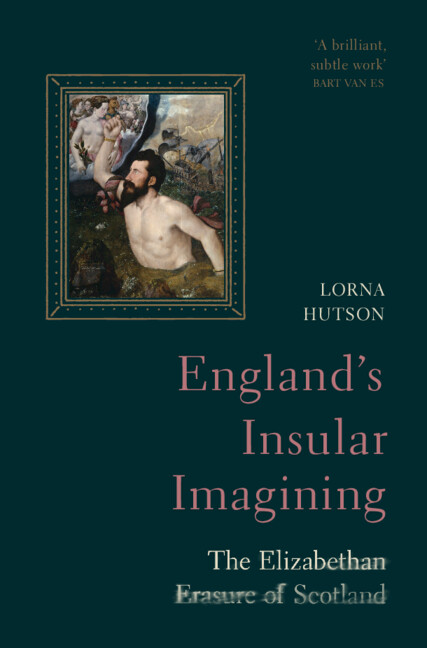
We say – and rightly – that we need to learn our histories. ‘Not knowing each other’s stories’, as David Olusoga has recently said in the Guardian, is a ‘weakness’ in Britain, not least in terms of the four nations that make up the United Kingdom. But what if the dominant ‘history’ of the Union and our mental map of the island itself have both been shaped by the distorting brilliance of the largest nation’s poetry and drama? What if we’ve mistaken for Britain’s history and geography what is, in fact, a set of dazzling metaphors, resonant figures of speech?
When I started research on England’s Insular Imagining, I read again and again in modern histories how the Scottish King, James VI and I, had violently tried to force the two nations, England and Scotland, to meld their identities in a ‘Great Britain’ which nobody wanted. Yet nowhere did I read of the brutally violent, irreparably destructive invasions of Scotland, lasting from 1542 to 1550, which aimed to create a ‘Great Britain’ ruled by England. It turned out (and I hadn’t known this) that ‘Britain’ was an English imperial idea before it was James’s brainchild. It came from Welsh medieval legend. We’re familiar with some of its heroes: King Lear and Cymbeline and, most of famous of all, King Arthur and Merlin. In the 1540s, this ‘British history’ was used to justify England’s right to invade Scotland. But by 1600, through the work of poets like Edmund Spenser and Shakespeare, and geographers like John Dee and Richard Hakluyt, it had turned into a glorious imaginative vision of England as an island set in the sea, ready to trade to the East Indies and the Americas. In this new poetic geography Scotland simply vanished, as if it had never existed and took up no space on the map.
For me, what has been so eye-opening and astonishing about doing this research has been the discovery of just how powerful this period’s poetic shaping of thought has been in creating our modern ‘historical reality’. To take a small example: a painting of the town of Haddington in East Lothian, garrisoned by the English in their invasion of Scotland in 1548, is described in by the National Trust as being about a defence of ‘Haddington in Kent’, though there’s no such place! This is because our familiarity with Shakespeare’s plays dictates that England is always an ‘island nation’ to be defended, not an invader of the island’s other nations.
A bigger example: the salient questions around the deposition of Mary Queen of Scots in 1567 have been assumed to be – ‘was she guilty of the murder of her husband’? or ‘what kind of threat did she pose to England?’ But these questions are themselves partly determined by a clever propaganda campaign in which the English government enlisted the poetic skills of certain Scottish authors, including George Buchanan, to present Mary as tyrant and whore. A more pertinent question to ask would be how supporters of Mary’s constitutional right were persecuted and defeated by English forces in 1573, or how the English legally justified their prevention of the restoration of another nation’s anointed sovereign. It’s been exhilarating and exciting for me to see how powerful literature is in determining what questions we ask of history.
I hope England’s Insular Imagining will help us break out of some of those overdetermined ways of thinking so that we can ask new questions about other parts of the island, but also so that we can better appreciate and understand the radically constitutive shaping fantasies of English literature.

Latest Comments
Have your say!